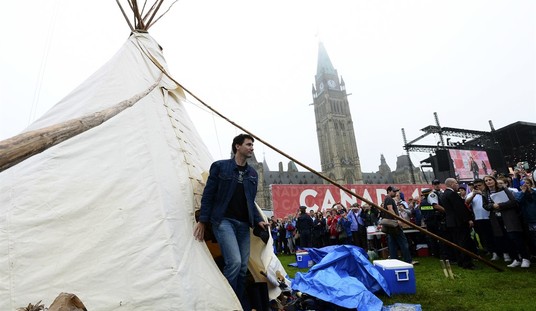In all the brouhaha over the New York Times’ publishing top secret information on financial surveillance, one thing amuses me in a dark comic way: from my point of view the Big Scoop is one of the great myths of our post-Watergate times. Almost always it is simply handed to you. It takes no guts whatsoever or even, in many cases, much legwork.
That was certainly true in my case. This blog had a small scoop on the UN oil-for-food program. It was the first to announce that lead investigator Robert Parton had withdrawn from the Volcker Commission. How did I get that “scoop”? Someone emailed it to me. Of course, I checked it out. But was it particularly hard work or brave in any way? Don’t be silly. [Well, you did have to get up early for a call from Paris once.-ed. That’s true.]
Now my best guess is this new scoop from the NYT arrived in a similar manner, especially since three papers ended up with the story. This means the leaker or leakers simply wanted to make these media conduits for their ideas. Okay. No big deal. This has been SOP for years (although it shouldn’t be). But does this make the publishers, editors and reporters courageous figures suited to be portrayed by Redford and Hoffman in the movies? … Well, I take that back. Maybe it does these days. But it wouldn’t end up an heroic film, even if its authors intended it to be. It would be a morass of moral confusion and self-deception. If it were properly made, however, it would end up something like Evelyn Waugh’s immortal satire Scoop.
So why am I writing all this? Only to point out that people who are publishing this material are driven by a self-aggrandizing myth that is not only outdated – it is wrong.









Join the conversation as a VIP Member